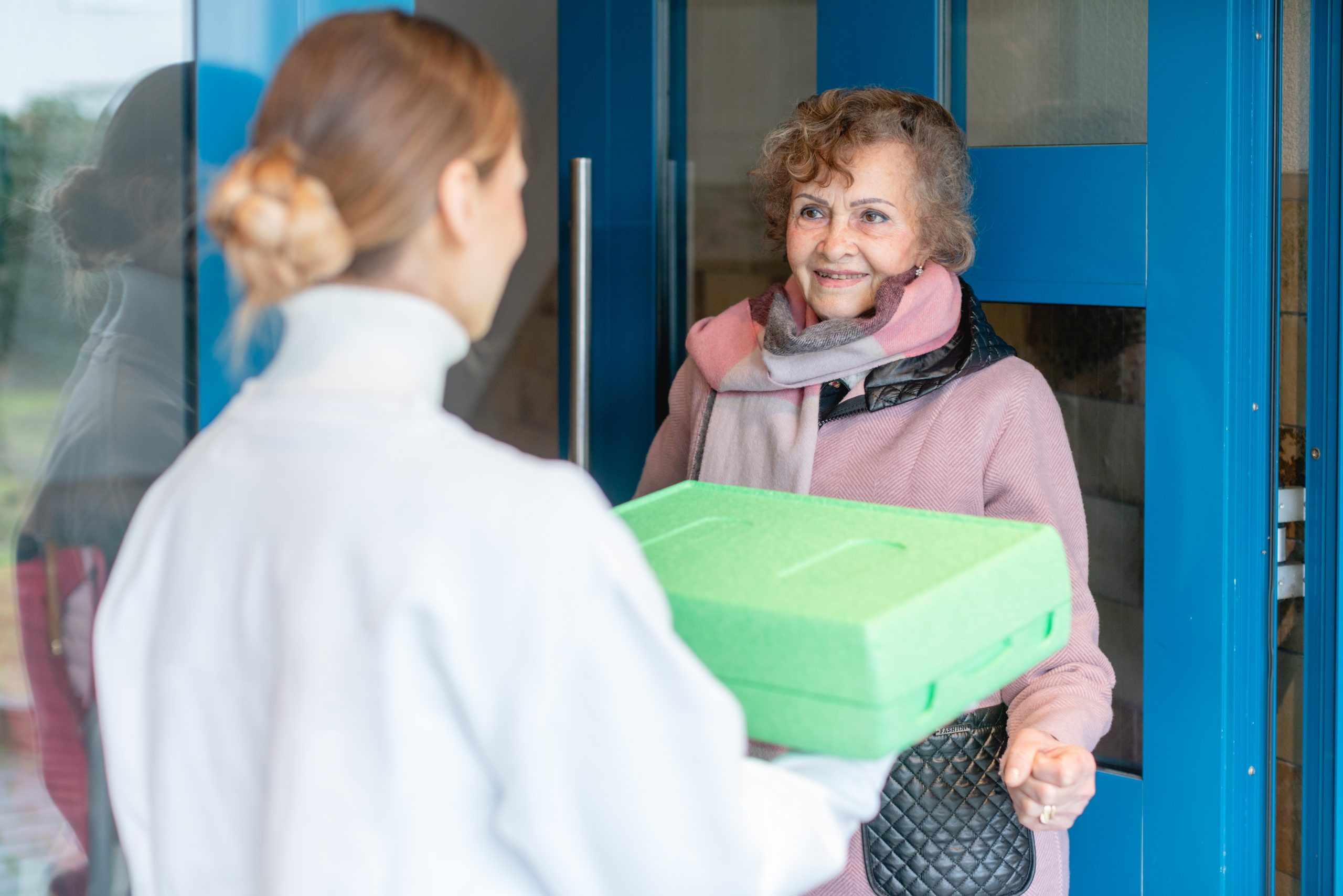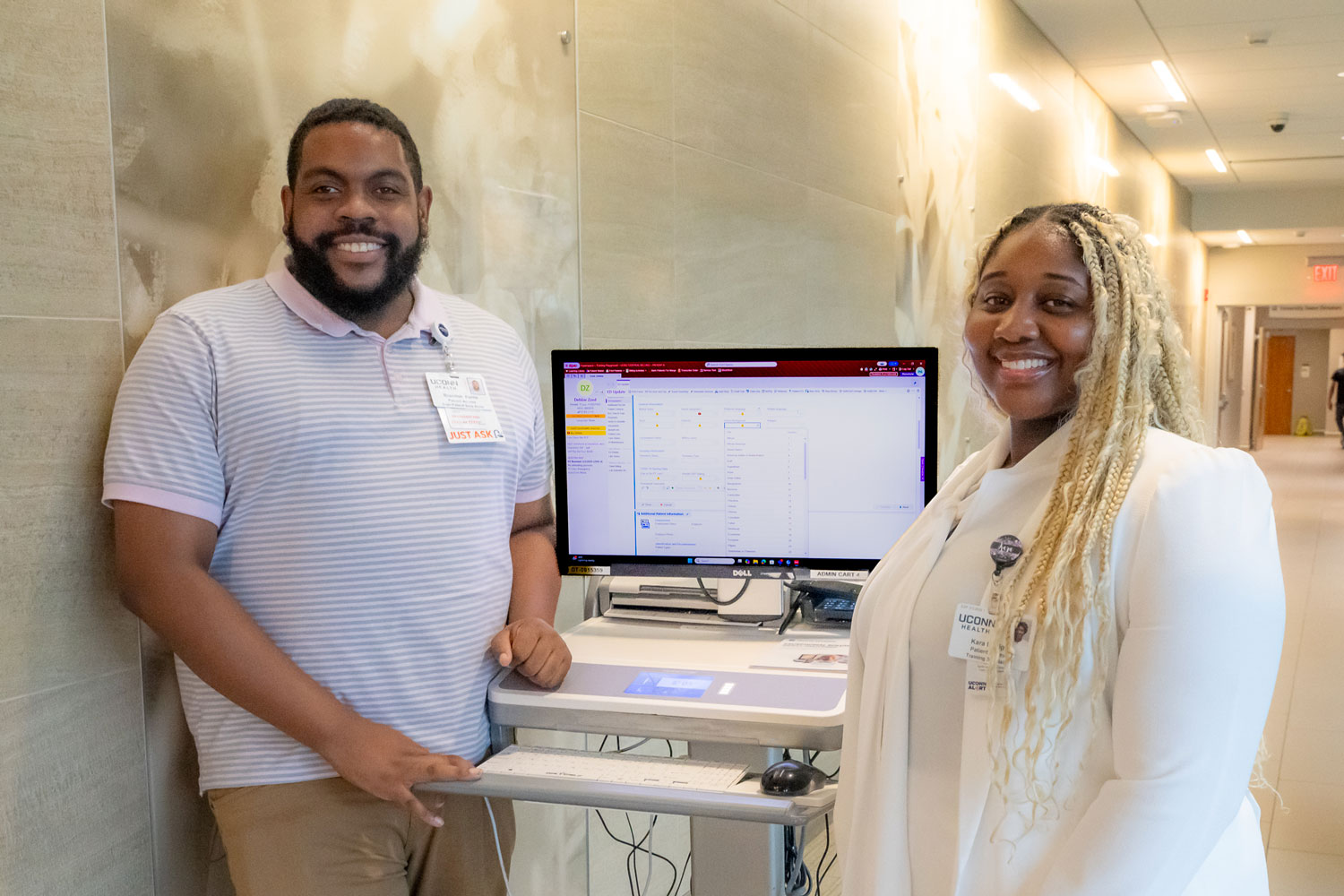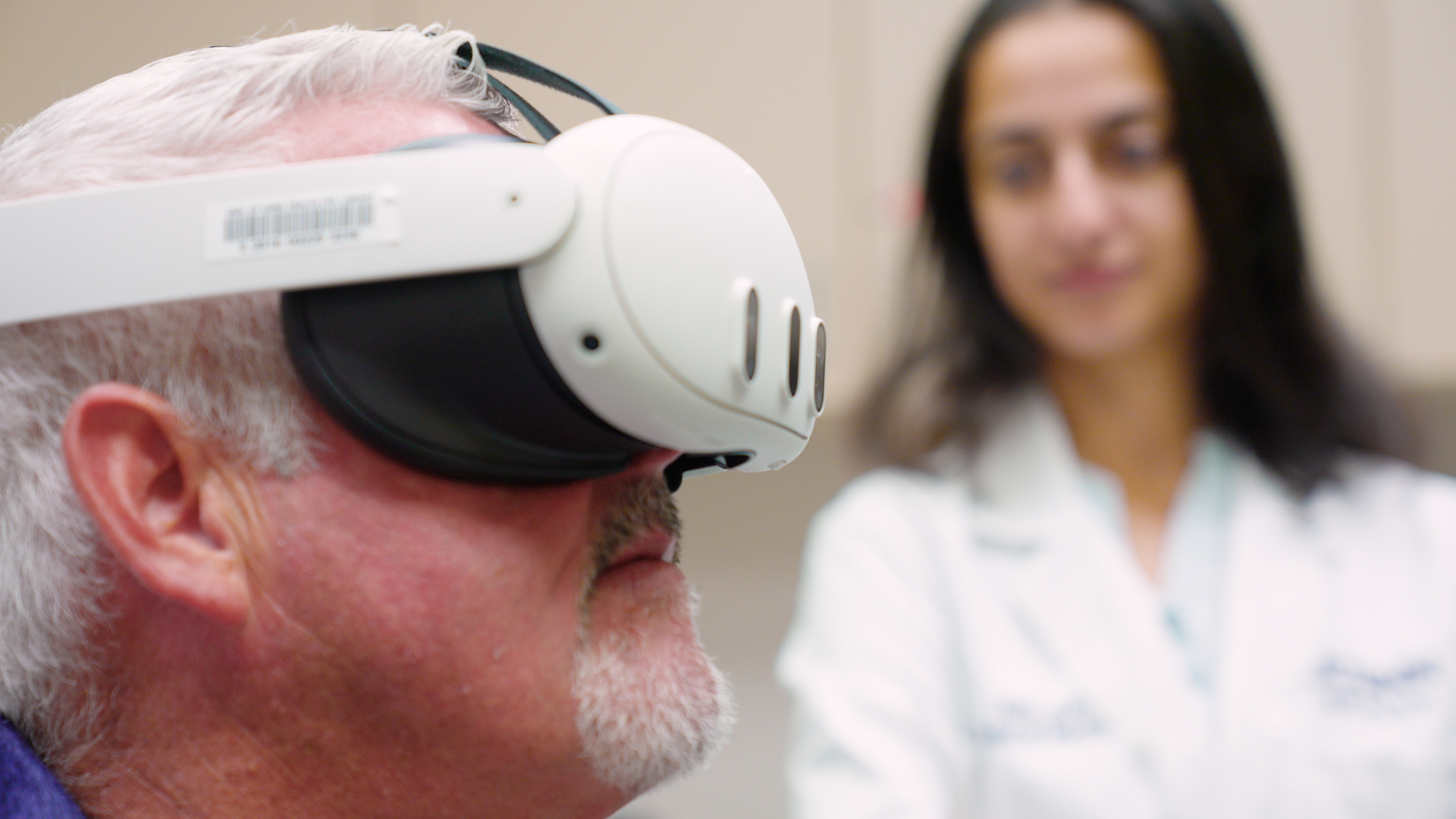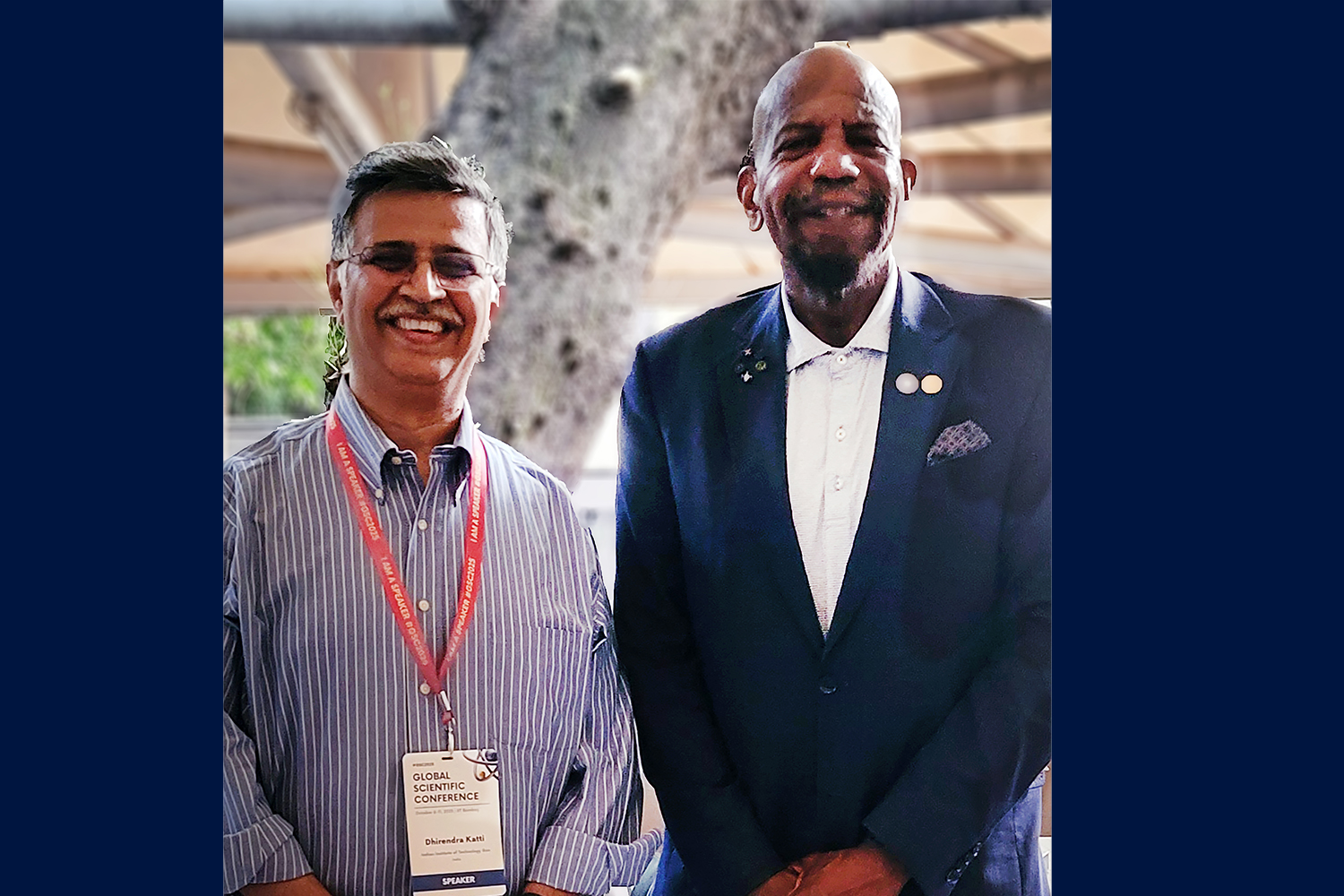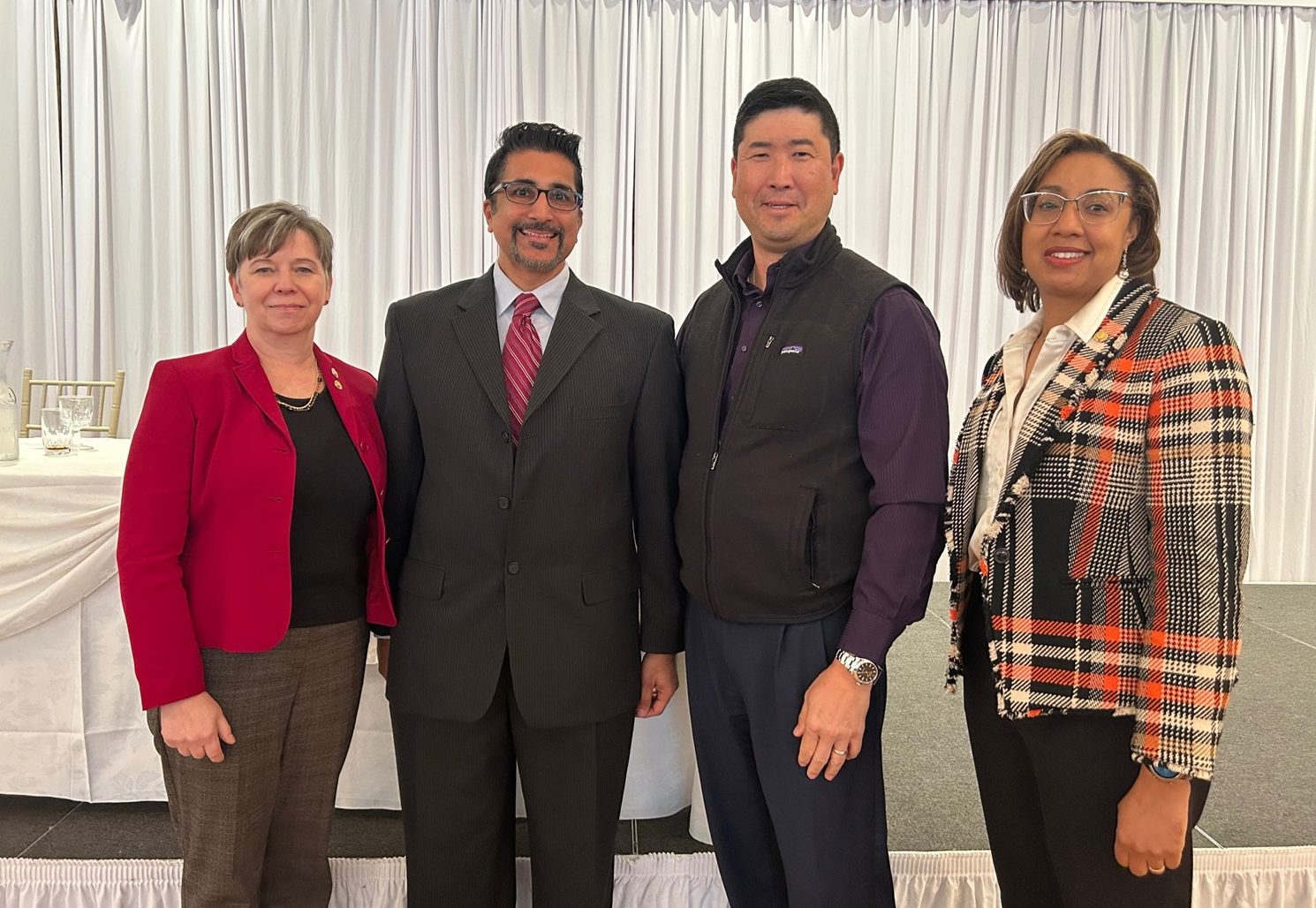Training Program Delivers Resources to Reduce Social Isolation Among Seniors
Researchers at UConn, Johns Hopkins University, and Brown University have collaborated on a program designed to reduce social isolation impacting homebound older adults.
Social isolation is a growing health concern that disproportionately impacts older adults. The lack of social interaction is connected to increased risks of physical and mental health conditions including heart disease, depression, and cognitive decline. The toll of social isolation on health is estimated to be the equivalent of smoking 15 cigarettes a day.
Kim Gans, a professor in the Department of Human Development and Family Sciences, and Kali Thomas, a gerontologist and professor at Johns Hopkins University School of Nursing, worked with the Mississippi State Department of Health and colleagues at Brown University to conduct a study published in the Journal of Applied Gerontology. The study evaluates a cost-effective training program addressing social isolation among homebound older adults.
Gans and Thomas designed the program that consists of a video and website to train drivers for federally funded meal delivery programs, like Meals on Wheels, to recognize the signs of social isolation and be more sociable with their clients.
As the U.S. population ages, home-delivered meal programs funded through Title III of the Older Americans Act are promising outlets for addressing food insecurity, socialization, and independence.
According to data from the U.S. Administration for Community Living, in 2021, 1.5 million homebound older adults received meals through home-delivered meal programs.

“We developed a simple, inexpensive intervention that has the potential to be widely disseminated to meal delivery programs across the country to help their drivers reduce social isolation among their homebound clients,” says Gans, who is a principal investigator at UConn’s Institute for Collaboration on Health, Intervention, and Policy (InCHIP).
The authors held focus groups with meal delivery drivers from Mississippi, Rhode Island, Georgia, Texas, and California and subject matter experts to understand how drivers are trained to recognize social isolation and receive feedback on the video and website.
During the focus groups, delivery drivers indicated that social isolation is prevalent among their clients.
One focus group participant said, “We go to the client’s house and they’re there by themselves…You are the only folks they do see during the week.”
Despite this, they typically do not receive training to address isolation.
“This is how we were trained; we went in and said, ‘We’re interested in being drivers,’ and she said ‘Great, let’s get your fingerprints…Come in and get your list Friday.’ I mean, that was our training,” said another focus group participant.
After incorporating feedback, the research team worked with meal delivery programs in Texas, Rhode Island, and Mississippi to recruit participants to test the training intervention.
Overall, the researchers found that the video and website significantly increased drivers’ intent to identify social isolation and engage with clients socially.
“The video helps alert viewers to the isolation experienced by those who live alone. Those who watch it can become better at recognizing the signs and doing something, even something small, to help alleviate that isolation,” said one Rhode Island-based participant of the training video and website.
The next step in the project is to secure additional support to scale the intervention.
“I hope that we can get future funding to widely disseminate this intervention and study its implementation and effectiveness with Meals on Wheels program drivers across the country,” says Gans.
Additionally, this project’s implications extend beyond nutrition and can be adapted to other occupations serving homebound older adults, such as oxygen delivery and home health aides.
Gans is an expert in designing interventions for use in real world settings.
She is working on another project alongside Caitlin Caspi, associate director of InCHIP and Director of Food Security Initiatives at the UConn Rudd Center for Food Policy and Health, to evaluate the effectiveness of innovative solutions that Meals on Wheels of Rhode Island (MOWRI) is implementing to enhance programming. Thomas is a consultant on the project.
Caspi, Gans, Thomas and colleagues recently published a study protocol in BMC Public Health for a randomized controlled trial that will explore the impact of including community health worker coaching calls and healthy grocery bag deliveries to MOWRI’s home-delivered meal program to enhance diet quality and nutrition, address social isolation and food insecurity, and improve homebound older adults’ quality of life.
Latest UConn Today
- Collecting More Race, Ethnicity, Language DataMeet some of the team behind UConn Health’s effort to improve health care quality, address patient disparities with more REL options
- UConn Pharmacy Student Receives the Gateway to Research AwardKayla Barca, a fifth-year Pharm.D. student, has received the Gateway Award from the American Foundation for Pharmaceutical Education (AFPE) for her research in opioid use disorder. With the support of her mentor, Gregory Sartor (Ph.D.), Kayla has excelled both in the classroom and laboratory, evidenced by this prestigious award.
- UConn Health Minute: Comfort in 3DEven a simple skin procedure can make someone a little nervous. At UConn Health, a new study is helping patients find calm in an unexpected way – through virtual reality. Fourth-year UConn medical student Avni Jain initiated the study starting in UConn Health’s dermatology clinic.
- UConn Professor Sir Cato T. Laurencin Delivers Plenary Lecture at the ACS Global Scientific ConferenceLaurencin traveled to Mumbai, India to serve as the Plenary Speaker at the American Chemical Society (ACS) Global Scientific Conference.
- UConn Creates Family Medicine LeadersThree graduates of UConn School of Medicine elected leaders of the American Academy of Family Physicians and its Connecticut Chapter.
- One Collapse. Countless Saves.One Collapse. Countless Saves. Can we stop deadly heat in its tracks with ice and science? With half a lap left in the 10k race, Douglas Casa collapsed. The 16-year-old had dreamed of competing in New York’s Empire State Games since he was 12. He made the cut that June, finishing in the top two […]



